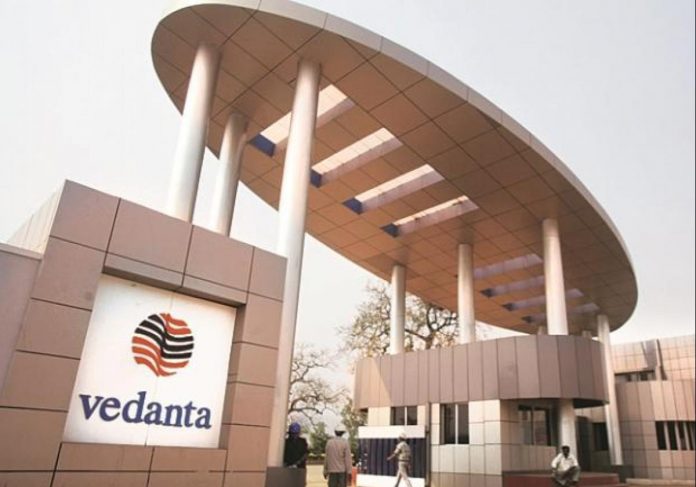Although delisting seems like the flavour of the season, voluntary delisting is not a new-fangled game. Earlier, numerous marquee companies like Denso India, Chemplast Sanmar, Alfa Laval India, Nirma Ltd, Patni Computers, Binani Cements, Atlas Copco, Syngenta India, Wartsila India, Wimco and E-Serve International resorted to delisting. Now metals and mining baron Anil Agarwal”s brainchild Vedanta Limited joins the gang.
Delisting is when a listed company eliminates or removes its shares from trading on a stock exchange. Generally, corporate entities delist when they want to reorganise or restructure, are acquired by others or the promoters want to increase their share. Delisting can be voluntary or involuntary.
On May 11, 2020, Vedanta’s delisting from the Indian stock exchanges was broadcast. This is not the first time that the Vedanta group has played the game of corporate simplification. Promoters play the game whenever they feel that they can reshuffle the business to relist again at a superior valuation.
The merger of Sterlite with Sesa in 2012 and that of Cairn India with Vedanta were the best examples. Moreover, in 2018, Agarwal had announced strategies to delist Vedanta Resources from the London Stock Exchange and completed the buyout productively in October 2018. Vedanta Resources Limited was the first Indian company to list on the London Stock Exchange in 2003 and it was a $64.40-crore bid. Vedanta Plc, the group parent company, also went private in 2018 amidst a big hullabaloo.
On May 18, 2020, the board of the Vedanta group ratified delisting of the shares at an offer price of Rs 87.50 per share. However, as per the delisting rules and regulations, the final offer price will be fixed in harmony with the reverse book-building mechanism. At the floor price of Rs 87.50 per share, the company will have to disburse Rs 16,218 crore to procure all (including ADR shares) of 185.3 crore shares which translates into 49.86 percent public shareholdings when low oil and metal prices have already cast gloom over the group’s fate and fortunes. Most likely, their Volcan Investments arm will be used to execute the procurement.
Vedanta Resources Limited, which owns a 36.8 percent stake in Vedanta Limited, is of the firm opinion that the delisting will boost operational and financial flexibility, as well as transform the credit profile of the company. The delisting is also supposed to support a fast-tracked debt reduction programme in the medium term.
While the Covid-19 catastrophe is recent, earlier investors and financiers were gravely hit by dubious business practices and corporate scandals. The list of prominent and prestigious corporates which have devastated and destroyed investor wealth is lengthy. Everyone on the list has been a renowned member of large industry associations or lobby groups. Unfortunately, these associations or groups have not condemned scams, deceitful deals or opportunistic activities of their members. The context for this is the news that Anil Agarwal, the scrap-dealer-turned-billionaire-industrialist, is taking advantage of market distress and investors’ apprehension about an imminent recession to take his Indian company, Vedanta Limited, private.
According to domestic institutional investors, who make up 49.48 percent of Vedanta’s public shareholding, the offer price is too low and not rewarding. The stock is trading close to its 52-week low and at a sheer discount to its five-year average. Minority stakeholders anticipate the offer price to be closer to the replacement value or significantly higher than the ruling price. They are of the opinion that the delisting offer is not appealing. HDFC Securities has also mentioned that investors can offer their shares at Rs 160-180. The book value of Vedanta in September 2019 was Rs 178.
Voluntary delisting does not happen meteorically. Stakeholders get abundant time to unload their stocks and only after the official sanctions come will the shares be delisted. Subsequently, an exit window of one year will be made available to residual shareholders to tender their shares at the delisting price. Before the ultimate approval, shareholders can still find an apt exit in the secondary market if the price is above the delisting offer price.
Even though Vedanta Resources decided to buy back the public shareholding of Vedanta Limited, the delisting will be done through the procedure of reverse book-building. The floor price per share fixed is not the concluding and sanctified price. In most cases, the board of directors has been eager to raise the price offered and shareholders take their time before taking a final call.
Shareholders of Vedanta Limited should accept the offer if they are able to get a healthier price. Investors have an option to either partake or not to partake. However, if the company receives more than 90 percent in reverse book-building, it can compel delisting.
Undoubtedly, Vedanta is looking to benefit by buying out investors at a lesser price and riding out the imminent downturn. It will be interesting to see if minority shareholders can efficaciously fight Vedanta’s opportunistic attempt to delist the company.
Will corporate greed and opportunism win? Will anyone from its sparkling board of directors, including past chairman of Securities and Exchange Board of India UK Sinha, show the courage to object and oppose? We will know soon enough.
—The writer is a tax specialist and financial adviser based in Goa
Lead Picture: indiatvnews.com


